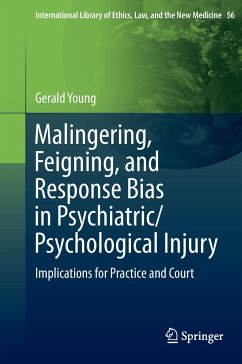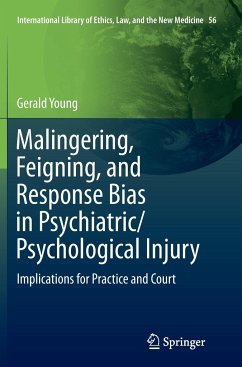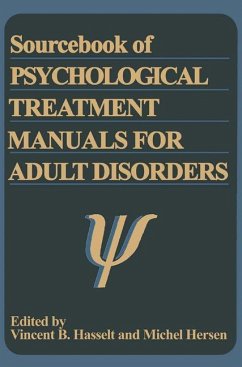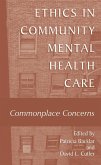This book is a comprehensive analysis of the definitions, concepts, and recent research on malingering, feigning, and other response biases in psychological injury/ forensic disability populations. It presents a new model of malingering and related biases, and develops a "diagnostic" system based on it that is applicable to PTSD, chronic pain, and TBI. Included are suggestions for effective practice and future research based on the literature reviews and the new systems, which are useful also because they can be used readily by psychiatrists as much as psychologists.
In Malingering, Feigning, and Response Style Assessment in Psychiatric/Psychological Injury, Dr. Young ambitiously sets out to articulate and synthesize the polarities involved in the assessment of response styles in psychological disabilities, including PTSD, pain, and TBI. He does so thoroughly and very even-handedly, neither minimizing the degree that outright faking can be found in substantial numbers of examinees, nor disregarding the possibility that there can be causes for validity test failure other than malingering. He reviews the prior systems for classifying evidence of malingering, and proposes his own criteria for feigned PTSD. These are conservative and well-grounded in the prior literature. Finally, the book contains dozens of very recent references, giving testament to Dr. Young's immersion in the personal injury literature, as might be expected from his experience as founder and Editor in Chief for Psychological Injury and the Law.
Reviewer:
Steve Rubenzer, Ph.D., ABPP
Board Certified Forensic Psychologist
In Malingering, Feigning, and Response Style Assessment in Psychiatric/Psychological Injury, Dr. Young ambitiously sets out to articulate and synthesize the polarities involved in the assessment of response styles in psychological disabilities, including PTSD, pain, and TBI. He does so thoroughly and very even-handedly, neither minimizing the degree that outright faking can be found in substantial numbers of examinees, nor disregarding the possibility that there can be causes for validity test failure other than malingering. He reviews the prior systems for classifying evidence of malingering, and proposes his own criteria for feigned PTSD. These are conservative and well-grounded in the prior literature. Finally, the book contains dozens of very recent references, giving testament to Dr. Young's immersion in the personal injury literature, as might be expected from his experience as founder and Editor in Chief for Psychological Injury and the Law.
Reviewer:
Steve Rubenzer, Ph.D., ABPP
Board Certified Forensic Psychologist
"Malingering, Feigning, and Response Bias in Psychiatric/Psychological Injury provides much food for thought and contains a great deal of content that forensic psychiatrists and psychologists, as well as clinicians, would find helpful. It would be a worthy holding for libraries at academic medical centers, as well as for specialists who frequently encounter feigned presentations of psychopathology." (Nicholas Kontos, Journal of Clinical Psychiatry, Vol. 76 (4), April, 2015)








